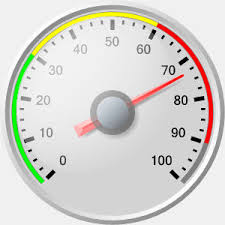记忆方法
Gauge: 给级,给事物评定级别----标准规格,测量仪,测量。
2. 谐音“给计”----给计量一下----用计量器给计量、测量一下。
3. gage => gauge.
2. 谐音“给计”----给计量一下----用计量器给计量、测量一下。
3. gage => gauge.
中文词源
gauge 测量仪器
来自PIE*ghalgh, 杆,棍,词源同gallows. 字母l软化成u. 词义由杆,棍引申为测量,比较canon, 词源同cane.
英语词源
- gauge
-
gauge: see engage
- gauge (v.)
- "ascertain by exact measurements," mid-15c., from Anglo-French gauge (mid-14c.), from Old North French gauger "standardize, calibrate, measure" (Old French jaugier), from gauge "gauging rod," a word of unknown origin. Perhaps from Frankish *galgo "rod, pole for measuring" or another Germanic source (compare Old Norse gelgja "pole, perch," Old High German galgo; see gallows). Related: Gauged; gauging. The figurative use is from 1580s. "The spelling variants gauge and gage have existed since the first recorded uses in Middle English, though in American English gage is found exclusively in technical uses" [Barnhart].
- gauge (n.)
- early 15c., "fixed standard of measure" (surname Gageman is early 14c.), from Old North French gauge "gauging rod" (see gauge (v.)). Meaning "instrument for measuring" is from 1670s; meaning "distance between rails on a railway" is from 1841.
Railway-gage, the distance between perpendiculars on the insides of the heads of the two rails of a track. Standard gage is 4 feet 8 1/2 inches; anything less than this is narrow gage; anything broader is broad gage. The dimension was fixed for the United States by the wheels of the British locomotive imported from the Stephenson Works in 1829. [Century Dictionary]
权威例句
- 1. The index is the government's chief gauge of future economic activity.
- 这一指数是政府判断未来经济活动的主要依据。
- 2. "The fuel gauge is broken." — "Broken? How do you mean?"
- “燃油表坏了。”——“坏了?你说清楚点?”
- 3. The fuel gauge reads below zero.
- 燃油表显示油量在零以下。
- 4. The gauge must be giving a faulty reading.
- 量表的显示肯定有误。
- 5. The temperature gauge indicated that it was boiling.
- 温度计显示它在沸腾。
